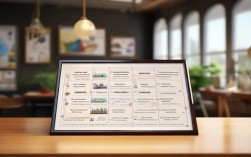Transportation is a vital part of daily life, whether commuting to work, traveling abroad, or simply running errands. Mastering key English words related to traffic, vehicles, and road systems can help travelers, students, and professionals communicate effectively. Below is a comprehensive guide to essential transportation vocabulary, categorized for easy learning.

Types of Vehicles
Understanding different vehicles is fundamental for discussing transportation. Here are the most common ones:
- Car – A four-wheeled motor vehicle used for personal transport.
- Bus – A large vehicle carrying multiple passengers, often on fixed routes.
- Truck (Lorry in British English) – A heavy motor vehicle for transporting goods.
- Motorcycle (Motorbike) – A two-wheeled vehicle powered by an engine.
- Bicycle (Bike) – A human-powered vehicle with two wheels.
- Train – A series of connected carriages running on railway tracks.
- Subway (Underground/Tube in British English) – An underground urban rail system.
- Taxi (Cab) – A car available for hire with a driver.
- Airplane (Aeroplane in British English) – A powered flying vehicle for air travel.
- Ship/Boat – Water vessels for transporting people or goods.
Road and Traffic Terms
Navigating roads requires familiarity with traffic rules and infrastructure. Key terms include:
- Traffic light – A signal controlling vehicle and pedestrian movement.
- Crosswalk (Zebra crossing in British English) – A marked path for pedestrians to cross roads.
- Intersection – A point where two or more roads meet.
- Roundabout – A circular junction where traffic moves counterclockwise.
- Highway (Motorway in British English) – A major road for fast travel between cities.
- Sidewalk (Pavement in British English) – A path for pedestrians alongside roads.
- Speed limit – The maximum legal speed for vehicles on a road.
- Toll booth – A station where drivers pay to use certain roads or bridges.
Public Transportation Vocabulary
Using buses, trains, and subways efficiently requires knowing these terms:

- Ticket – A pass allowing travel on public transport.
- Schedule (Timetable in British English) – A plan showing departure and arrival times.
- Platform – The area where passengers wait for trains or subways.
- Conductor – A person who checks tickets on trains.
- Fare – The cost of a journey on public transport.
- Delay – When a vehicle arrives later than scheduled.
- Transfer – Changing from one transport line to another.
Driving and Vehicle Parts
For drivers, understanding car mechanics and road rules is essential. Useful words include:
- Steering wheel – The wheel used to control direction.
- Brake – A device for slowing or stopping a vehicle.
- Accelerator (Gas pedal in American English) – The pedal that increases speed.
- Gearshift – The lever used to change gears in manual cars.
- Headlights – Front lights for night driving.
- Windshield (Windscreen in British English) – The front window of a vehicle.
- License plate (Number plate in British English) – A metal plate displaying a vehicle’s registration number.
Air Travel Terminology
Flying involves specific vocabulary that travelers should know:
- Boarding pass – A document allowing entry onto a plane.
- Check-in – The process of registering before a flight.
- Security check – Screening for prohibited items before boarding.
- Departure gate – The area where passengers board their flight.
- Baggage claim – The place to collect checked luggage after landing.
- Flight attendant – A crew member assisting passengers.
- Turbulence – Sudden, rough air movements during flight.
Nautical and Maritime Terms
For those traveling by sea, these words are helpful:

- Port – The left side of a ship when facing forward.
- Starboard – The right side of a ship when facing forward.
- Deck – The floor of a ship.
- Captain – The person in command of a vessel.
- Anchor – A heavy device to keep a ship stationary.
- Harbor – A sheltered area where ships dock.
Common Traffic Signs and Symbols
Recognizing road signs ensures safe travel. Key examples include:
- Stop sign – A red octagon indicating vehicles must halt.
- Yield sign – A triangle signaling drivers to give way.
- No parking – A sign prohibiting vehicle parking.
- One-way street – A road allowing traffic in only one direction.
- Pedestrian crossing – A sign indicating a place for people to cross.
Useful Phrases for Travelers
Beyond individual words, knowing phrases can improve communication:
- "How do I get to the nearest subway station?"
- "Is this seat taken?" (On buses or trains)
- "What time does the next train leave?"
- "Excuse me, where is the baggage claim area?"
- "Could you slow down, please?" (For taxi drivers)
Language is a powerful tool for navigating the world. Whether driving, flying, or taking public transport, these words and phrases will help travelers move confidently. Understanding transportation vocabulary not only aids in daily commutes but also enhances travel experiences in English-speaking countries.

For anyone looking to improve their English for travel, practicing these terms in real-life situations will solidify knowledge and boost fluency. Safe travels and happy learning!


